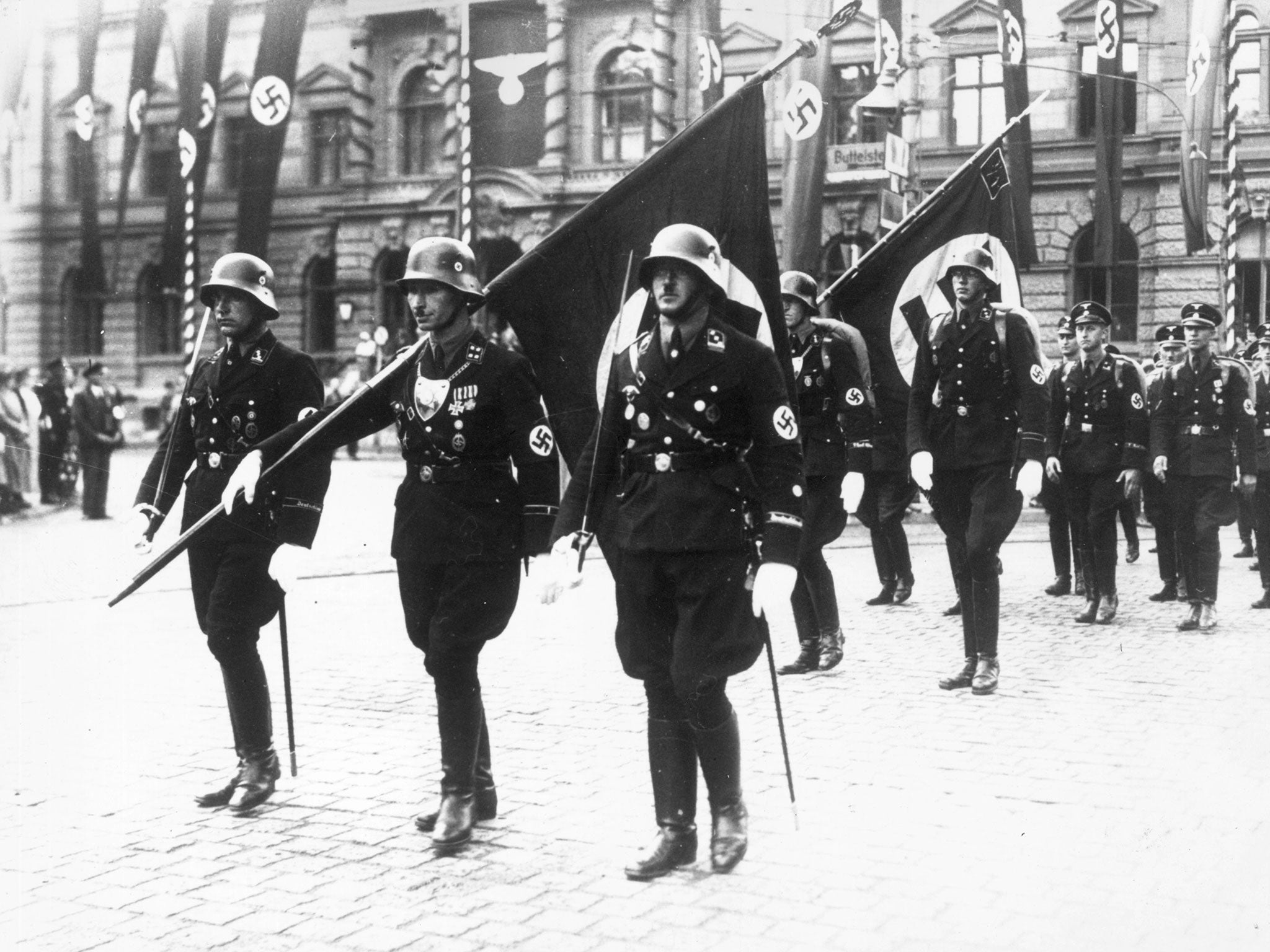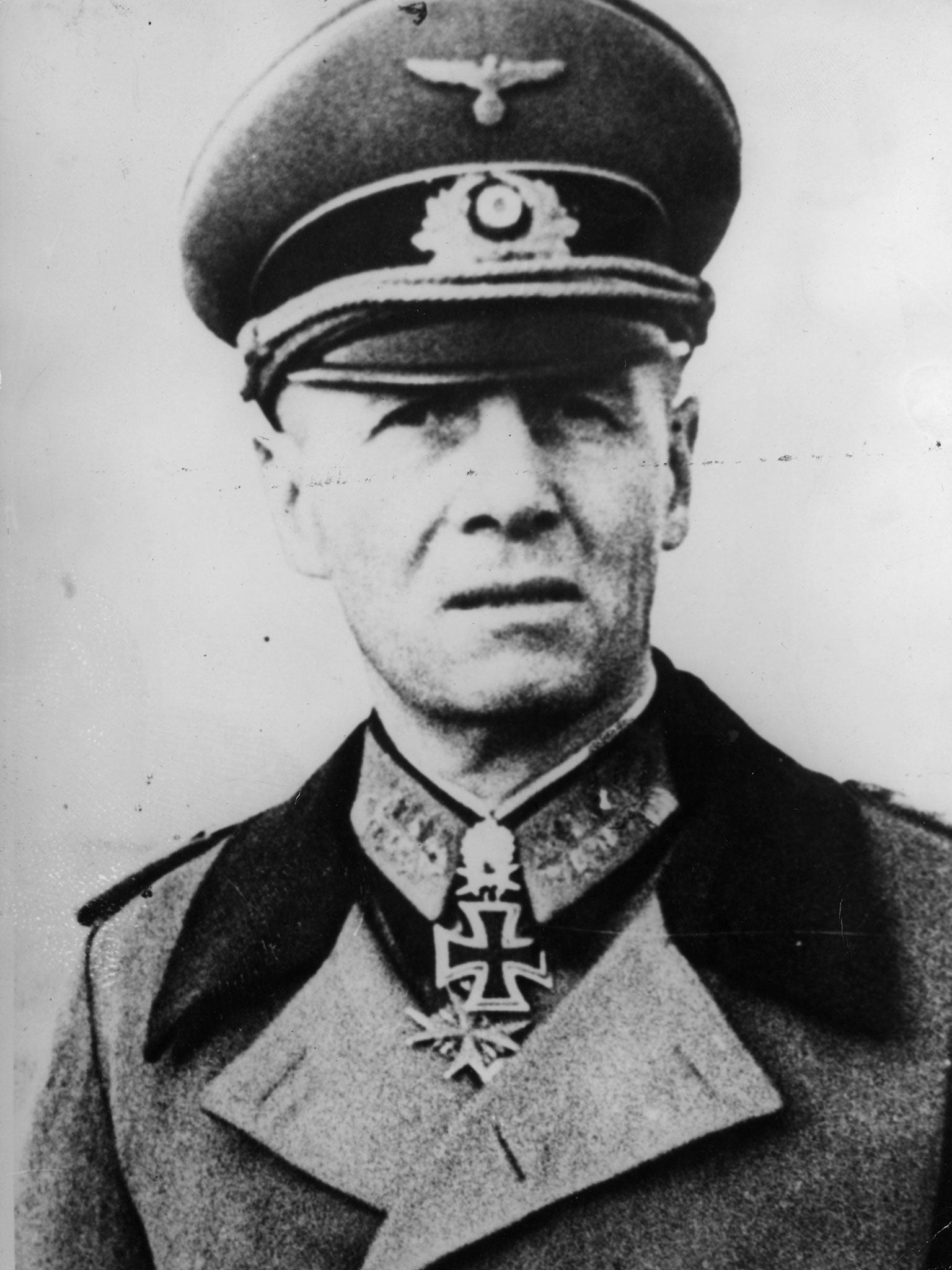Hitler's all-conquering stormtroopers 'felt invincible because of crystal meth-style drug Pervitin'
The methamphetamine-based drug Pervitin was manufactured from 1937 onwards by the Nazis and distributed among the armed forces

Your support helps us to tell the story
From reproductive rights to climate change to Big Tech, The Independent is on the ground when the story is developing. Whether it's investigating the financials of Elon Musk's pro-Trump PAC or producing our latest documentary, 'The A Word', which shines a light on the American women fighting for reproductive rights, we know how important it is to parse out the facts from the messaging.
At such a critical moment in US history, we need reporters on the ground. Your donation allows us to keep sending journalists to speak to both sides of the story.
The Independent is trusted by Americans across the entire political spectrum. And unlike many other quality news outlets, we choose not to lock Americans out of our reporting and analysis with paywalls. We believe quality journalism should be available to everyone, paid for by those who can afford it.
Your support makes all the difference.Hitler’s armies carried out their “Blitzkrieg” invasions of Poland and France while high on a version of crystal meth which kept them wide awake, feeling euphoric and invincible, says a new book about the Nazis’ use of drugs during the Second World War.
In Der Totale Rausch – (Total Rush), which was published in Germany last week, Norman Ohler reveals the key strategic role of the methamphetamine-based drug, manufactured from 1937 onwards by the Nazis under the brand name of “Pervitin” and distributed among the armed forces.
The drug was marketed as a pick-up pill which was designed to combat stress and tiredness and created feelings of euphoria. “In the beginning the army didn’t realise Pervitin was a drug: soldiers thought it was just like drinking coffee,” explained Mr Ohler.
But the Nazi leadership was well aware of Pervitin’s value as stimulant during combat. After having tried it in 1939 during the German invasion of Poland, the German army subsequently ordered 35 million tablets of Pervitin for soldiers before advancing on France in the spring of 1940.
The invasion of France shocked the world. In four days, Hitler’s tanks captured more French territory than German troops had managed to secure in four years of the First World War. Pervitin helped the invading Nazis stay awake, keep going and, apparently, feel great.
Mr Ohler bases his findings on months of research at military archives in Germany and the United States. Historians say his revelations will change current perceptions of Germany’s wartime military role; “The fact that the Blitzkrieg was a war fuelled by drugs, once again debunks the theory that the German army was clean,” said German historian Hans Mommsen.

The Second World War General Erwin Rommel, the so-called “Desert Fox” is said to have consumed Pervitin as if it was his “daily bread”. He was decorated by Hitler as a tank commander during the invasion of France.
Mr Ohler explains how the Nazis rejected recreational drugs such as cocaine, opium and morphine which were readily available in Germany during the 1930s and condemned them as “Jewish”. The Third Reich’s chemists were encouraged to find an alternative stimulant more suited to an Aryan Master Race. The Nazi chemist Fritz Hauschild came up with Pervitin.
“The Nazis wanted Pervitin to rival Coca Cola, so people took it, it worked and they were euphoric,” Mr Ohler explains. To ensure that millions of German housewives on the home front were not left out, the Nazis even developed chocolates containing the drug.
The book also provides insights into the role of Hitler’s personal physician, Dr Theodor Morell. The author reveals that Morell managed to conceal the fact that he was Jewish by joining the Nazi party before the war and obtaining new identity papers.
Morell is said to have made Hitler completely dependent on drugs, turning him into a virtual junkie by the time he committed suicide in his Berlin bunker in 1945. Mr Ohler gained access to Morell’s notes which reveal that he gave Hitler a total of 800 injections over a period of 1,349 days.
But more telling are Ohler’s revelations about Hitler’s growing dependence on a drug called “Eukodal” – a pain killing narcotic with double the strength of conventional morphine. He discloses that Hitler was first given the drug before a meeting with Mussolini in 1943 at a point when Italy was considering backing out of its alliance with Nazi Germany.
After two Eukodal injections, the Nazi leader felt so good that he was able to convince Mussolini to stay with Germany for the time being.
Join our commenting forum
Join thought-provoking conversations, follow other Independent readers and see their replies
Comments